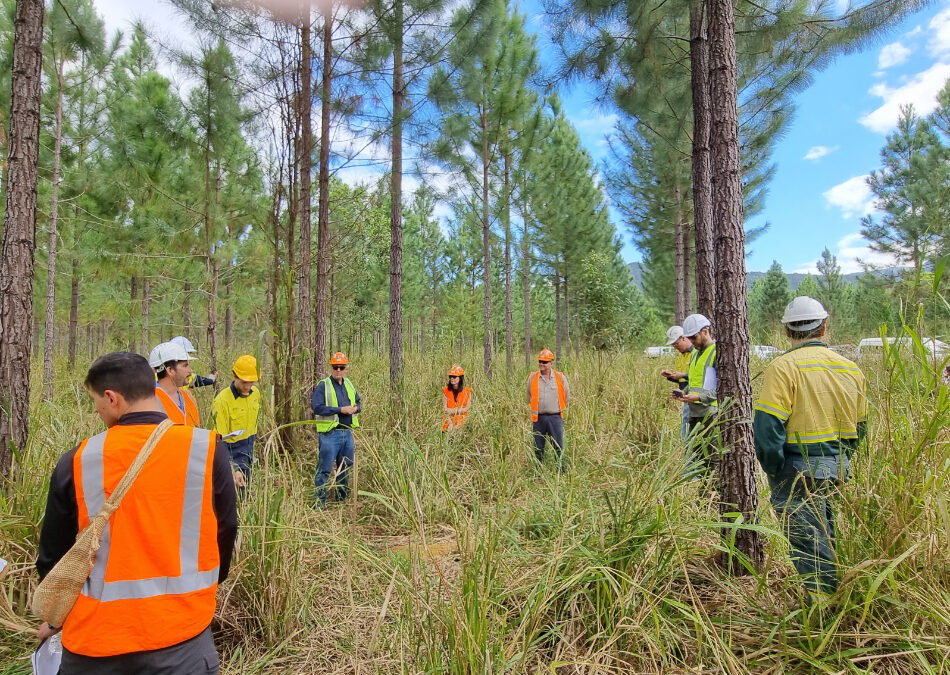Evaluating an opportunity that has the potential to meet growing demand for softwood timber products plus create an additional income stream for Northern Australia’s graziers is the focus of a new Cooperative Research Centre for Developing Northern Australia (CRCNA) research collaboration.
The three-year Silvopastoral trials for commercial pine systems in North Queensland project, led by Timber Queensland, brings together forestry and livestock production experts and environmental and carbon consultants to assess potentially transformational farming systems. Key research partners include the Queensland Department of Agriculture and Fisheries, CQUniversity, HQPlantations and CO2 Australia.
Given the high-level of innovation involved, the project has attracted a range of funding supporters including the CRCNA, Timber Queensland, HQPlantations and Forest and Wood Products Australia through its voluntary matching program.
Timber Queensland’s CEO Mick Stephens said the project will assess the economic merits of combined grazing and commercial tree farming systems compared to traditional forestry and grazing only practices.
“There is a high likelihood these silvopastoralism systems can deliver higher net financial returns per hectare for suitable land types, while at the same time contributing to income diversification and lower overall carbon emissions, or even carbon neutral outcomes for the farming enterprise,” said Mr Stephens.
The project will measure and model the returns from field trials with cattle grazed in widely spaced commercial pine forests and compare the returns from carbon sequestration and combined timber and beef production returns with traditional grazing only activities on cleared farmland.
CRCNA CEO Anne Stünzner said this project builds on recommendations made in the CRCNA’s Northern Forest and forest products industry situational analysis, which aimed to deliver a pathway for realising forest industry potential in Northern Australia
“The principals and benefits of silvopastoral systems are understood from overseas experience, to unlock the full productive potential for timber and beef we need to assess tree-pasture systems relevant to Northern Australia,” she said.
In addition to technical field work and trials, the project team will work to keep the forestry and livestock industries up-to-date with key research findings to inform investors and landowners on the benefits of these novel systems.
More information
Carla Keith, Communications Manager, CRCNA, 0499 330 051
Clarissa Brandt, Strategic Relations & Communications Manager, 0416 350 328


